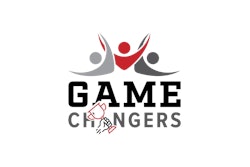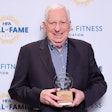How do you pare a 60-minute presentation down to 5? This was the dilemma AB Show guest speaker Paul Wesselmann faced one snowy February day several years ago in Wisconsin.
 Paul Wesselmann, The Ripples Guy, Cincinnati
Paul Wesselmann, The Ripples Guy, Cincinnati
Wesselmann, who leads skill training and leadership development sessions across North America, was set to speak to a group of volunteers, but as snow swirled all around, schools announced early closings, meaning mothers in the group had to pick up their kids early. Wesselmann's 60-minute slot was cut down to 5.
Realizing that 5 minutes was better than none, Wesselmann spent 1 minute on each of the five points covered in his presentation. He got his message across by practicing what he continues to preach today: There's never enough time to do everything, but there's always enough time to do what's most important.
In Wesselmann's session at AB Show, Nov. 17-19, attendees will learn to manage their time better by doing the following:
1. Develop better habits.
"People think time management is easier for some because of their personality traits. But habits are not personality traits. With any skill, you can get better with information and practice. Discipline is something that you can develop."
2. Know why you are doing something.
"If people understand why they are doing something, if they understand where it fits in the bigger picture, then they are more likely to like doing it, want to do it and be good at doing it."
3. Be mindful.
"Setbacks are inevitable in work and life. The more you have cultivated mindfulness — the ability to stay present — the less likely failure or setbacks will cause you to give up."
4. Focus on starting a task instead of completing a task.
"A lot of times, just the idea of getting something done is overwhelming. Ask yourself, 'What's the smallest step that I can take right now that would make meaningful progress to get started on a task?' "
5. Set aside time for creative work.
"Creativity isn't always measurable in the short-term. You need to create pockets of time to focus on big-picture, long-term items."
6. Turn off your phone and set priorities.
"Probably one of the biggest failures we do is we justify leaving our phones on. We justify it by saying, 'There could be an emergency.' Things that are not emergencies distract us. If the first thing you do in the morning is check email, you are letting other people decide your priorities. Start the day by making your top priority the big-picture items you think are most important."
Transform your program, facility and career at AB Show, Nov. 17-19. This premier event is the No. 1 place for you to learn how to build a great team, get top-notch education and tips from industry thought-leaders, and find the products and services you need to effectively manage and equip your program or facility.





































